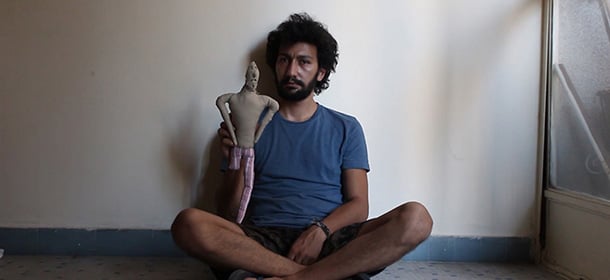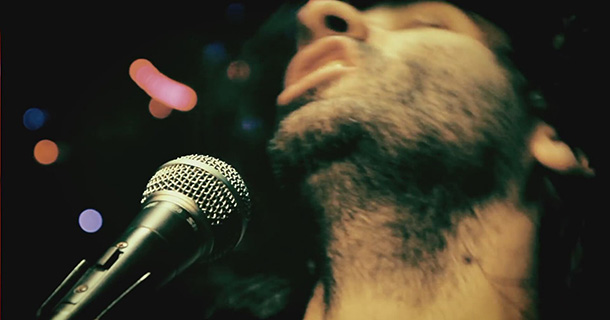I can still recall the crowds, the faces, the chants, the tears of joy and mostly the cries of "The people want to bring down the regime!" The events we witnessed were unprecedented, unplanned and almost surreal. The images pouring from little-known city squares were overwhelming. "Is this actually happening right now? By the hour? No, by the minute!"
The spark started in Tunisia with a young man named Mohamed Bouazizi. The idea moved swiftly to Egypt, and then blazed a trail across Libya, Yemen and Bahrain. The hibernating masses thought to be dead, awoke -- first in the hundreds, then swiftly to the thousands, then hundreds of thousands, and finally millions of people, until we lost count of their numbers. A giant has awakened but it was a gentle behemoth with flowers in its hands, chanting improvised lyrics on human dignity and democracy, and the end of terror and bloodshed. We, who had lived in this Arab world our entire lives, were meeting for the first time. The God-like figures of power and control that we had engraved in our minds and souls as eternal were dissolving, disappearing. Unbelievably and against all odds, we were actually winning.
The question of what would come next was implicit. We had not expected to win this struggle. We had always been the generation of defeat, of wasted dreams, from Jerusalem to Beirut to Baghdad. Which nation would be the next to catch fire?
We waited, but there was only a resounding deafening silence.
When it did start, it came almost unexpectedly, with Deraa's kids drawing the famous slogan: "The People Want to Bring Down the Regime!" on their school wall. Then the doors of hell opened. For the first time we saw mutilated corpses of children in a display of unremitting horror. But still, the flowers and the candles resolutely faced steel and power for six long months, while the international community seemingly tried to catch up to the pace of change.
As the entire world watched the Arab Spring, you could almost hear the thoughts from the international powers.
"How long do you think they can stand it?"
"I don't know, but it looks exciting, let's wait and see!"
As strategists, diplomats and politicians offered analysis and debate on talk shows and television programs, our lack of expertise and naive wishful thinking became clearer as time passed. Measures were undertaken to stem the rising tide in Syria, Yemen, Bahrain, Morocco, Saudi Arabia and Jordan. Soon the questions began to shift. Was this Arab Spring too much to handle? For how long could crowds be defenseless? How long would they stand united in the face of violence and horror?
The Arab Fall
As the democratic uprising slid into devastating civil wars or was cut short by formidable military campaigns, violence reemerged and the Arab Fall unfolded. The sudden and still largely incomprehensible images of pacifist action and democratic change coming from the heart of the Arab world were once again normalized. The familiar images of frail kids that could be saved by donating ten dollars a day or a warm blanket were back, and the world was again comprehensible to western eyes.
But did we all as human beings miss our chance to uplift an entire region from the black hole of oppression and violence?
Did we discard the cries for freedom and democracy just because they were voiced in Arabic? Did we miss the momentum that the Spring brought to us? Maybe...
But as a generation, we gained one thing, namely, the priceless gift of lucidity.
I can't believe this all began only five years ago. It feels like a lifetime.
Just as autumn strips the trees bare, the Arab Fall revealed the naked structure and dynamics of power and ideology. The dictator-saviour paradigm was overthrown, and slogans like "Fight for Palestine" were revealed to be thin and worn out. Ideals and belief systems are actively questioned and forced to endure the rigorous test of the intellect.
This is the ideal time to make documentaries and that is exactly what is happening. In and around the Arab world, filmmakers and artists are creating timeless films that capture and document a decisive crossroad. This is not only a political or philosophical crossroad, but a conceptual one as well. Suddenly new ideas are being introduced, examined and tested. Dialogues and roundtable discussions are bubbling away, and individuality and artistic expression is flowering. Even language itself is transforming. Change has happened and it cannot be undone. New untold stories are coming to the surface; sincere and simple yet propelled by a universality and humanity that cannot be denied or ignored.
Cinema as trial
It is with this approach that I selected the films in the Arab Spring/Arab Fall program for the DOXA documentary film festival that is showing now in Vancouver. This program is not intended as a panorama of films made about and around the Arab Spring, rather it is a trial, an attempt to illustrate the lab-like questioning and longing for cinematic experimentation from the same generation that fueled the Arab Spring. This program is intended to offer Vancouver audiences a special pass into a world in the midst of profound change with films that not only capture extraordinary stories but that also honour the people at the heart of these stories.
Roshmia, a debut documentary feature by Salim Abu Jabal, depicts the life of an elderly Palestinian couple living in a shack and facing demolition by Israeli authorities. As the "Palestinian Superhero" idea is replaced by the reality of an elderly frustrated couple, the film becomes a rare piece of authenticity where merciless action is undertaken by those in power as easily as washing one's hands.

Another first-time filmmaker, Afraa Batous's film Skin is a tale of friendship, theatre and displacement set against the backdrop of the Syrian tragedy. The narrative travels along with the three young displaced friends between Alepo, Beirut and Istanbul as they contend with the reality of their homeland.
Farid Eslam's Yallah! Underground uses music as a uniting force for radical change, as the emerging underground progressive music scene that rattles cages and demands dancing.
For the first time in a very long time, no one is waiting for a savior who promises victories for the price of freedom. People are open to exploring, experimenting and making mistakes. The seeds for a new beginning are now buried deep in the earth. Will they flourish? Will the Arab Spring generation carry its people into the future, into modernity, into a new Lumières era? Who will play the decisive roles of belief-shakers, new idea-whisperers?
Who will be the next philosopher-innovators? Are they activists, artists or filmmakers? Or maybe all three at once.
Roshmia plays Wednesday, May 11, 9 p.m. at Vancity Theatre, 1181 Seymour St.
Skin plays Tuesday, May 10, 8:30 p.m. at the Cinematheque, 1131 Howe St.
Yallah! Underground plays Thursday, May 12, 8:45 p.m. at the Cinematheque, 1131 Howe St. ![]()















Tyee Commenting Guidelines
Comments that violate guidelines risk being deleted, and violations may result in a temporary or permanent user ban. Maintain the spirit of good conversation to stay in the discussion.
*Please note The Tyee is not a forum for spreading misinformation about COVID-19, denying its existence or minimizing its risk to public health.
Do:
Do not: